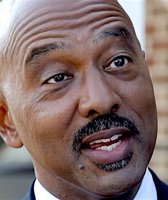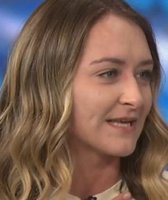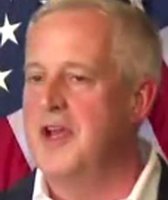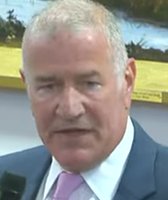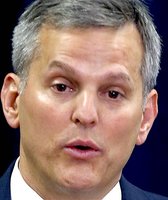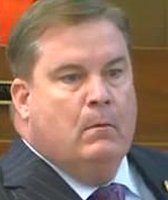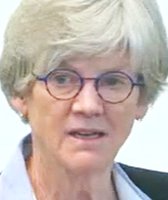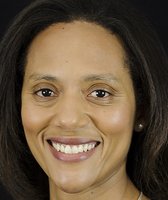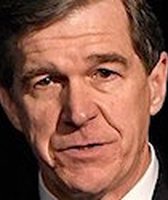Stand up for the facts!
Our only agenda is to publish the truth so you can be an informed participant in democracy.
We need your help.
I would like to contribute
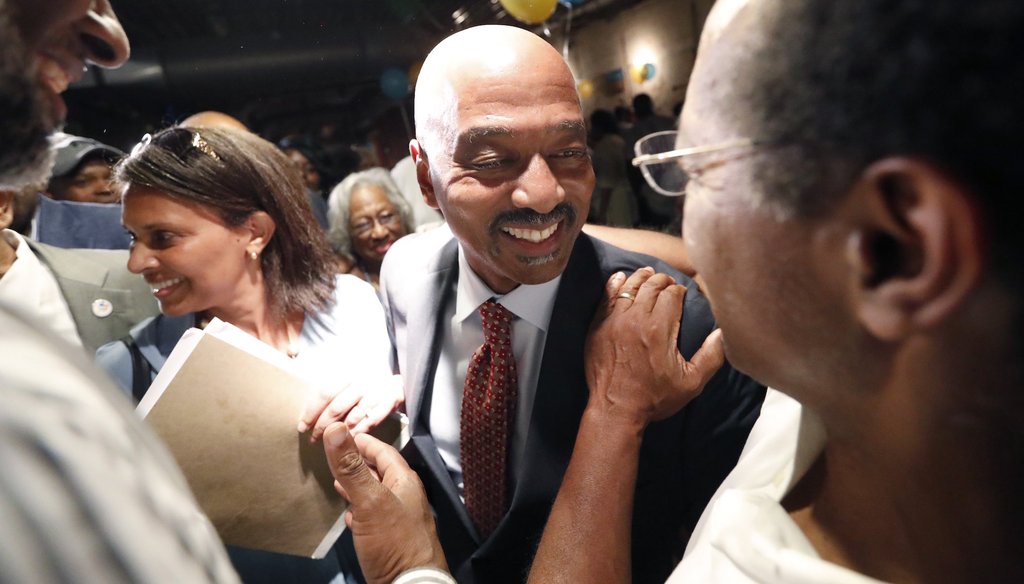
Charles Francis says he got "support all over Raleigh"
Runner-up for Raleigh mayor says he got support from 'all over'
Charles Francis stood outside his law firm in downtown Raleigh on Wednesday and gave several reasons he might have a shot at beating Mayor Nancy McFarlane in a runoff.
A majority of voters supported someone besides McFarlane, Francis noted. That’s true; if you add up the 19,232 votes for Francis, a Democrat, with those of Republican candidate Paul Fitts, it equals more than McFarlane’s 25,414. (The race is nonpartisan but candidates and political parties often align themselves with each other.)
Francis said he got "broad support in some inside-the-Beltline precincts and some northwestern precincts." He said he ran "neck and neck" with McFarlane in Brier Creek and that he "had support all over Raleigh."
Since McFarlane didn’t get 50 percent of the vote (she got 48 percent), Francis can call for a runoff and has until Oct. 19 to make the decision.
It’s no surprise that Francis, the Democratic candidate in a city dominated by registered Democrats, got votes in every precinct. But his claim that he got "support all over Raleigh" implies that he was competitive across the city.
Let’s look at his level of support and where he got it.
A map showing precincts across Raleigh appears to show a city that’s almost evenly divided between McFarlane supporters in the west and Francis supporters in the east.
Francis, who is black, campaigned on the idea that McFarlane and the City Council haven’t done enough to help Southeast Raleigh, which is predominantly black. Preliminary election results suggest racial, economic and geographic differences between McFarlane voters and Francis voters.
Northwest Raleigh
Francis said he had "broad support from some northwestern precincts." The lone precinct he won west of Falls of Neuse Road had 11 total votes. Francis got seven of them.
Otherwise, McFarlane carried every northwestern Raleigh precinct. In the area east of Glenwood Avenue, north of Interstate 440 and west of Atlantic Avenue and Litchford Road, McFarlane won 22 precincts by more than 100 votes.
There were five northwestern precincts where McFarlane and Francis were separated by fewer than 50 votes. Francis said his "neck and neck" comment referred to the precinct encompassing the Brier Creek area, where McFarlane got 235 votes and he got 210.
Votes in the other four precincts broke down this way: 31-13, 99-65, 127-78 and 57-30. Overall in those five close precincts, McFarlane garnered a total of 549 votes and Francis got 396.
Southeast Raleigh
There’s no concrete definition of the area that defines "southeast Raleigh" but it’s generally considered to be the area south of New Bern Avenue and east of Wilmington Street.
By that definition, Francis won most precincts handily. He won all but five precincts by more than 100 votes. In some of those, he won more than 85 percent of the vote.
Two precincts straddle Wilmington Street and McFarlane won both of those. But, unlike other southeast Raleigh precincts, the majority of voters in those precincts are white.
Francis won one precinct by only 23 votes, but it was in a district where only 63 votes were cast.
Inside the Beltline
This is where Francis suffered his biggest losses. Interstate 440 and, in some places, Interstate 40 combine to make a loop around downtown Raleigh known as the Beltline.
The Beltline encompasses the state Capitol, county seat – meaning it’s home to many government offices – and several universities, as well as the city’s richest and poorest residents.
A PolitiFact analysis found that McFarlane carried 26 of the 33 precincts that are inside the Beltline or that straddle it, drawing 8,521 total votes to Francis’ 5,066.
Francis defeated McFarlane by more than 100 votes in four precincts and by 98 votes in another – but they were all in southeast Raleigh. He drew 366 votes and beat McFarlane in precinct 01-28, which is more east than southeast, but only by seven votes. In another precinct that overlays part of Gorman Street and Western Boulevard southwest of downtown, Francis only lost 158 to 142.
But elsewhere inside the Beltline, McFarlane trounced him. There were 19 ITB precincts where McFarlane had more than twice as many votes as Francis and 10 precincts where she had three times as many votes as him.
She easily won most precincts west of Atlantic Avenue, south of Interstate 540 and north of Glenwood Avenue.
More data coming
The election results on the N.C. State Board of Elections and Ethics Enforcement website are preliminary. The vote counts haven’t been finalized.
More than 9,000 residents voted early: giving McFarlane 4,297 votes and 4,018 for Francis. And, as the Francis campaign pointed out, the board has yet to sort those votes into the precincts where the voters reside. There are 108 precincts, but only six early voting sites. Another 400 residents voted by mail.
So it’s possible that candidate performances in specific precincts results fluctuate in a week or so. Until then, the public has only the preliminary results to inform them about candidate performances.
Our ruling
Francis said he got support "all over Raleigh." He also said he got "broad support in some inside-the-Beltline precincts and some northwestern precincts" and that he got "overwhelming support in Southeast Raleigh." Francis was right about his performance in Southeast Raleigh but wasn't exactly competitive in northwest Raleigh and inside the beltline. That large swath of Raleigh stretching from Hillsborough Street to Millbrook Road – where he didn’t come close to competing with McFarlane – is too big and too dense of an area to suggest that he was competitive "all over Raleigh."
We rate his claim Half True.
Our Sources
The N.C. State Board of Elections and Ethics Enforcement.
Audio and video of Charles Francis, who spoke at his Raleigh law firm on Wednesday.
Email correspondence with Conen Morgan, spokesman for the Charles Francis campaign.
Email correspondence with Patrick Gannon, spokesman for the N.C. elections board.
Email correspondence with Gary Sims, executive director of the Wake County Board of Elections.
Browse the Truth-O-Meter
More by Paul Specht
Runner-up for Raleigh mayor says he got support from 'all over'
Support independent fact-checking.
Become a member!
In a world of wild talk and fake news, help us stand up for the facts.

